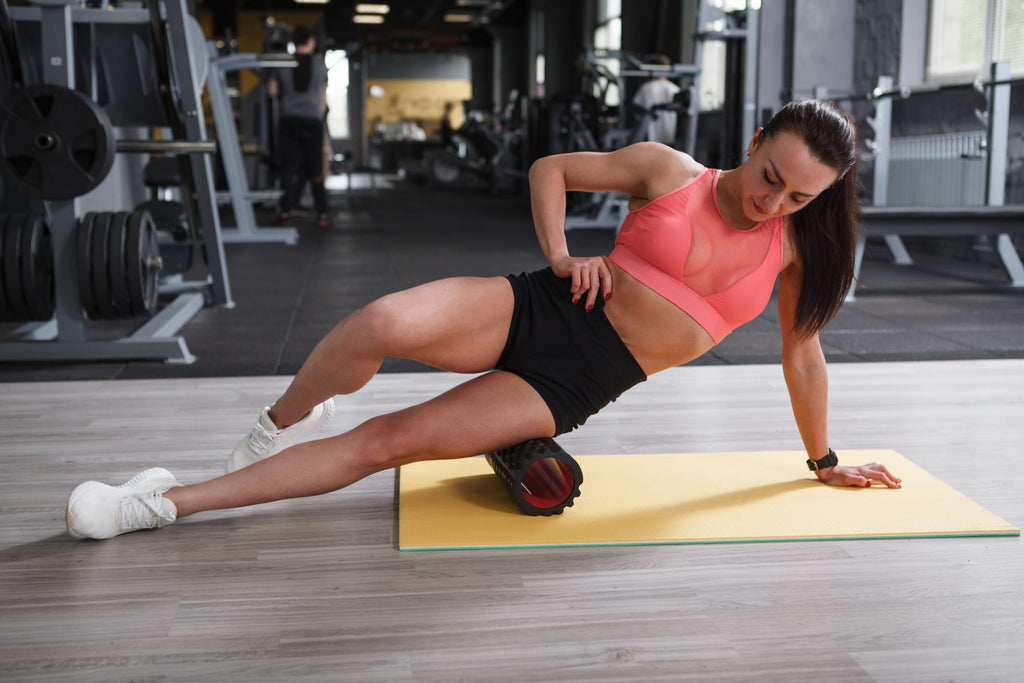
Here are a few simple & effective tips to help you recover better and train harder.
Hydration – DRINK THOSE FLUIDS!
This is a simple and important step for preventing DOMS (delayed onset muscle soreness). Hydration is one of the leading factors in how our body performs and recovers during physical activity.
When you exercise while being in a state of dehydration, your body’s blood pressure will drop to a point where blood and nutrients are not properly moved throughout the body to help recover those muscles damaged during training. It also can lead to more damage to those muscle groups causing an even slower rate of recovery.
We’re not gonna tell you to carry around the gallon jug, but be conscious of your daily water intake. Especially in the winter! It is easy to remember to drink water when you’re sweating through your clothes, but when it is cold outside it may not be the first thing on your mind. Plus it’s easy to forget just how much fluid we lose through our sweat and urine on a daily basis.
Grab those waters and grab them often. Eight bottles of water is a gallon. You’re likely passing at least that much during a full day in hot weather. Keep in mind, that additional substances like caffeine are natural diuretics and may speed up that water loss, too!
If you want to look at a little more in-depth study showing significant muscle loss in the dehydrated group (2.7% loss) compared to the hydrated group (0.9% gain), the journal of athletic training has a great study here.

Post-workout nutrition matters!
So, you just got done training and now you are ravenously hungry.
The question is: What do you eat to help your body the most?
To give you a precise macro breakdown depends on a lot of different variables, but the types of food stay relatively the same. We have always been taught to go after protein first for our post-workout meal because it is great for repairing and growing muscle tissue.
But we can’t forget that carbohydrates are necessary to help our body’s recovery mechanisms do their work. Carbs cause an increase in insulin output in the body, which assists in shuttling the proteins and carbs around to replenish your energy stores and repair muscle tissue.
As a bonus, foods with high antioxidant content like fruits, turmeric, or ginger will help aid in lowering the inflammation that causes all the pain!

Play TAG with your muscles
There are so many different supplements to choose from when it comes to recovery. It seems like over half the bottles you read say “Supports muscle recovery.”
So it is important to know what to prioritize. If we were to tell you one thing to help you on the supplement side for soreness, it would be Trans-alanyl-glutamine (aka T.A.G).
After strenuous exercise, your body is great at adapting to the stress of training. There are so many amazing things your body does to help deal with it.
Glutamine is an amino acid with many functions. Specifically in recovery, it moves those coveted nitrogen atoms around to your muscles that need the repairing.
This is one specific need that the body doesn’t handle as well in on its own. The problem with intense training is that we deplete those glutamine stores and our body takes a longer period of time restoring them, which then causes longer stints of inflammation. Taking your typical L-Glutamine can help, but the fact is that your body does not utilize as much of it in restoring muscle glutamine levels.
The real hero here is the trans-alanyl group attached to the glutamine in the product, T.A.G. That alanyl group helps assist in better transport of the glutamine in your bloodstream to your muscles. It’s a significant difference in overall uptake going from roughly 20% to the muscles with typical free-form glutamine to about 90% uptake with the T.A.G.
Dosing up on some T.A.G. as soon as you leave the gym to help replenish that glutamine loss does absolute WONDERS with recovery! But don’t just take it from me – try it yourself!
While these aren’t the only rules for soreness and recovery, you can take these guys to the bank! Following these 3 steps above will help the feeling of overtraining to become a thing of the past.




